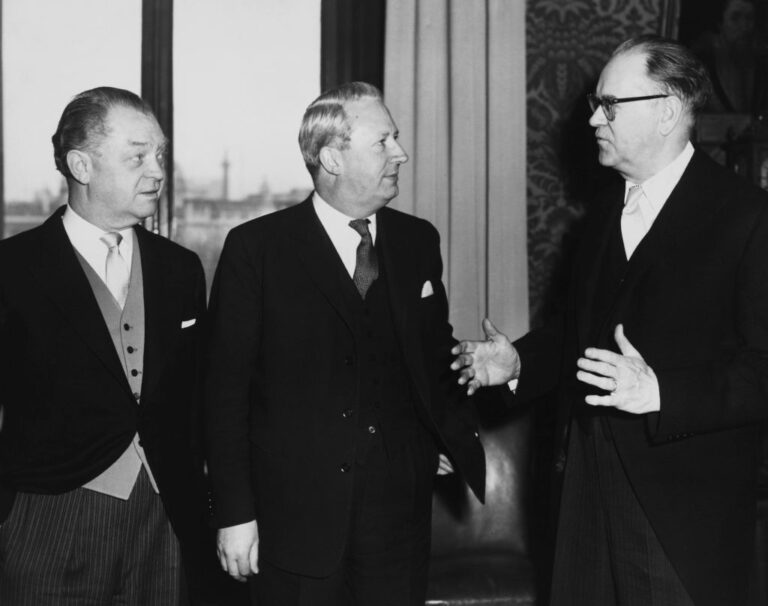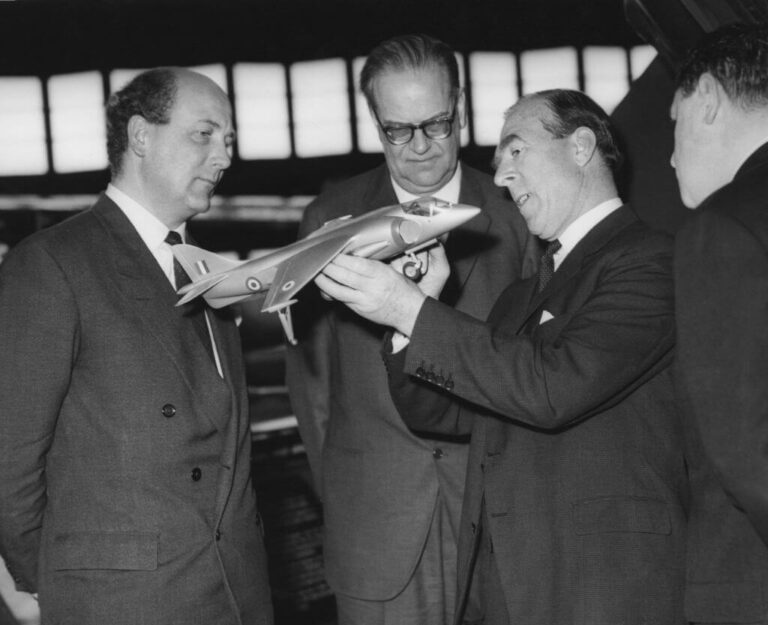Stockholm’s policy after World War II was characterized by flexibility and balance, which was typical for the Swedish diplomacy, at least until the end of Tage Erlander’s tenure as Prime Minister. Sweden continually feared becoming embroiled in a major conflict between superpowers that would do the country no good, but pose a major threat. Then, it was the main reason for the policy of keeping a distance between Sweden and the two political blocs.
Despite its cautious policy, Stockholm did not avoid diplomatic mistakes. Stig Wennerström, a Swedish Air Force officer, accused of spying for the Soviets, was arrested in 1963. The scandal reverberated not only in Sweden but also throughout the Western world, severely shaking up the political scene in the Scandinavian country. It highlighted the lack of government coordination in certain domains since, as it turned out, SÄPO[1] had long been suspicious of Wennerström. Both the Minister of Foreign Affairs Östen Undén and Defense Minister Sven Andersson knew about the case, but neither of them informed Prime Minister Erlander.
As a result of Wennerström’s interrogations, it became clear that this officer had been passing information to the Soviets for years, concerning, for instance, the Swedish Air Force strategy, mobilization plans, and secret military bases. Naturally, this led to distrust from NATO member states.
Détente, Palme, and Swedish activism
With the advent of détente in the late 1960s as well as the reduced pressure from the Western countries and the Soviet Union, Sweden had to adjust to a new political situation. It was decided that Sweden would be more active internationally, as exemplified by the “Undén Proposal.” It marked the beginning of the process of establishing Sweden as one of the main actors in disarmament policy. The government in Stockholm sought to become the leader of neutral states. Sweden’s main ambition was to play an active role in multilateral relations among countries by supporting other neutral and newly emerged states as well as acting as a mediator in conflicts.
The development of soft power, supported by the creation of a vision of a peaceful order and international security, has also been extremely important. Precisely because of this increased activity, Sweden has been criticized. Moreover, its actions were not recognized as “in line” with the neutral status. Nevertheless, the final document of the Conference on Security and Cooperation in Europe (CSCE), held in Helsinki in 1975, officially recognized the right of every state to neutrality. This was achieved, among others, thanks to the efforts of the Swedish diplomacy, which consistently affirmed its new, active role in international relations.
With the development of its active foreign policy, Stockholm became increasingly involved in international conflicts. The high point was reached during the term of Olof Palme[2]. He was known for his harsh criticism against the US, the USSR, right-wing dictatorships in Latin America, and countries that violated human rights. The politician was popular due to his sympathies towards socialist countries, however, he did not admire the Soviet Union nor its satellite states. He was one of those who criticized the Soviet intervention in Czechoslovakia in 1968 and Afghanistan in 1979, yet he supported North Vietnam in its struggle against the US. Moreover, he backed the Palestinian side during the conflict with Israel, which further aggravated Swedish relations with the United States.
The US-Soviet dialogue, initiated in the late 1960s, resulted in the signing of arms control treaties, including SALT I and SALT II. Additionally, the Ostpolitik, led by Willy Brandt’s West German government, led to an improvement in relations of the West with the USSR and the Polish People’s Republic. Despite the oil crisis and still considerable distrust concerning arms limitation (establishment of Soviet bases on the Kola Peninsula), the international situation seemed relatively stable. All disarmament, peacemaking, and human rights mediation activities were supported by Sweden, which constituted a perfect field for diplomatic maneuvering.
As a result of losing the 1976 elections, Olof Palme stepped down as the Prime Minister. Nevertheless, he did not stop his activity in the international arena. In 1980, he became a UN mediator in the Iraq-Iran war and headed the so-called Palmekommissionen. A year earlier, NATO had installed air-defense systems in Western Europe, giving the US and the Alliance a strategic advantage. The USSR was put in a position where it could expect a nuclear attack both from across the Atlantic and from Europe. The clear tension and fear of a nuclear war returned, something that Palme had firmly warned against. A series of diplomatic ploys and mutual accusations began. The election of Reagan as US President in 1981 and his policy towards the USSR sealed the “return” of the Cold War.
The great return
In 1982, Olof Palme became Prime Minister yet again. In the same year, he introduced the initiative to create a UN Independent Commission on Disarmament and Security Issues. This idea promoted the establishment of nuclear-free zones in Central and Northern Europe. It met with harsh criticism from NATO strategists and planners as well as military commanders in Sweden. On the other hand, the Soviets showed a positive attitude towards the “joint security” policy. This was primarily due to the vision of regaining strategic balance at little cost. Palme’s lenient attitude towards Moscow’s decision makers was surprising, especially in view of a number of incidents involving Soviet submarines, the frequency of which increased in the early 1980s. The lack of a firm response from the Swedish Prime Minister also gave rise to criticism from President Reagan.
During his second term, Olof Palme continued the policy of developing an international disarmament agenda. In 1984, together with the leaders of several other countries, he formed the Six Nation Five Continent Peace Initiative. It aimed at emphasizing that countries without nuclear capabilities must be heard in the context of the use of such weapons, which was also pointed out in the Delhi Declaration, the foundational document of the Initiative. Palme repeatedly indicated that the subject of nuclear weapons concerns every country in the world since every country would be affected by their use.
It was sought to force an end to nuclear testing and further development of this capability. This directly threatened the whole of Europe, which Palme called a “perfectly prepared battlefield.” This, along with the fight against apartheid, constituted the majority of the Swedish Prime Minister’s foreign policy in the last years of his life. Sweden’s influence in Africa was evident, above all in Tanzania and South Africa, where Palme supported the efforts to free Nelson Mandela. In addition, Sweden was an active member of the Non-Aligned Movement and its activities in this field were also noticeable in the 1980s.
On February 28, 1986, the successful assassination of Olof Palme ended a certain era in Swedish history. The greatest accomplishment in Stockholm’s foreign policy of this period was first and foremost the shift from the political withdrawal to active diplomacy and, most importantly, to pragmatic diplomacy, yet no longer so subdued, or even an aggressive one. Palme, who was an excellent orator, did not hesitate to use strong words, regardless of the political size of his opponent. Sweden suffered as a result of it – its diplomatic relations with some countries were suspended several times, for instance with the United States. However, the new way of conducting foreign policy, developed during his rule, is still noticeable in Swedish diplomacy today.
author:
Adrian Kolano
Editorial director of the European Foreign Affairs. Graduate of history at the University of Rzeszów and international relations at the University of Warsaw. Scholarship holder at the University of Lund. He is interested in current political affairs in Sweden as well as the security and history of the region.
This article was written as part of the statutory activities of the Polish think tank Warsaw Institute. If you appreciate the content prepared by our partner, we appeal to you for financial support for this non-profit organisation.
More information:
www.warsawinstitute.org/support/

[1] The Swedish Security Service, an intelligence agency responsible for internal security and counterintelligence.
[2] The Prime Minister of Sweden between 1969 and 1976 as well as 1982 and 1986.














